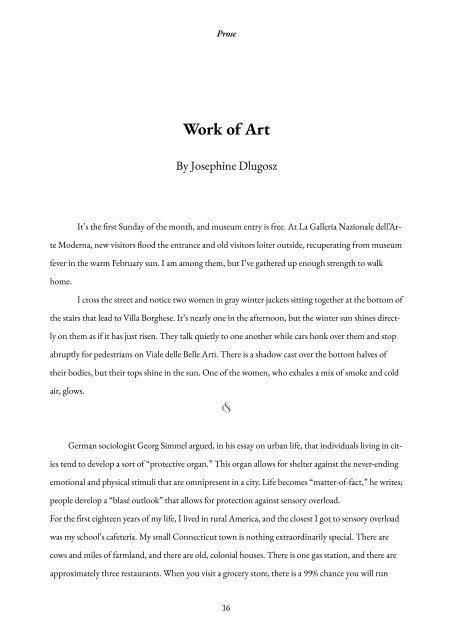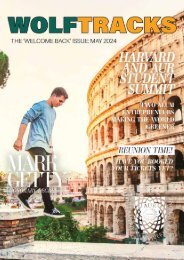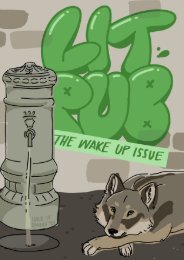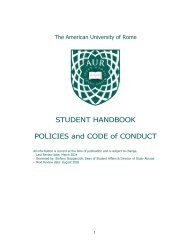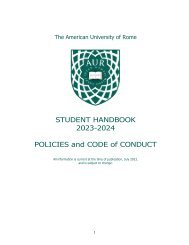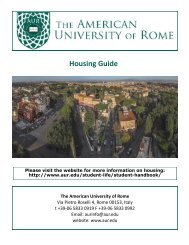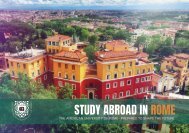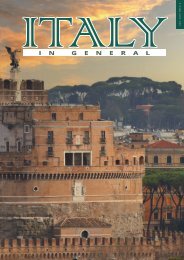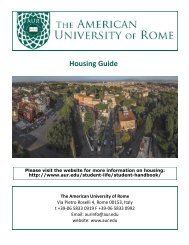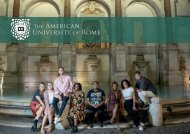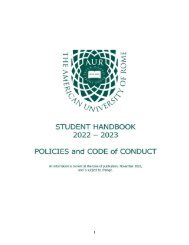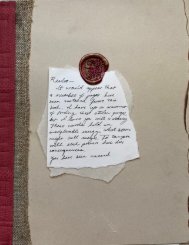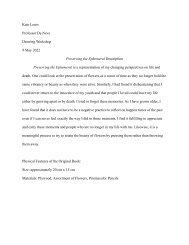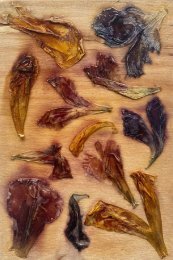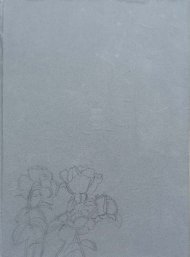AUR LitPut III Spring 2023 - From Now To Then
"When I found out about my father’s diagnosis, my first impulse was to light up,” Nalu Gruschkus writes in the opening line of Abnormal Whites and Excessive Blues, her striking piece about her father’s cancer and her own addiction to smoking. In A Bit of Extra Fun, Delaida Rodriguez is having an unpleasant lunch at a restaurant with her boozy mother. Over a chicken sandwich she has barely touched, she peers into her mother’s jade eyes only to realize with dread that she is more like her than she would care to be. Sam Geida looks back in Friday Night Dinners to the glorious family get-togethers at his grandmother’s house – now it’s only a few of them around the same table, with paper plates and the flat blue and white cardboard boxes of Gino’s Pizzeria. The stories in last year’s issue of Lit/Pub were mostly about making sense of things as we emerged from our Covid isolation. The mood is more assertive this year. Isabela Alongi’s vibrant cover design brilliantly evokes a world in movement and young people going places. It is a thread we pick up again in Josephine Dlugosz’s delicate musings (Work of Art), and in the short fiction of Scott Cameron and Raegan Peluso (A Song for Mr Solomon and Two-Faced). The poetry section is especially strong with Gina Carlo’s compassionate trilogy about love and loss and Scott Cameron’s haunting poem about his return to the bleak post-Katrina wasteland. On the lighter side, Lit/Pub spoke to Professor Bruno Montefusco about campus fashion. In the new memoir section, D.P. gives us a tender account of a childhood road trip with her father to Arizona (Snow). And students are traveling again! Emily Chow takes us with her on her intrepid solo trip to Malta. Rome, May 2023
"When I found out about my father’s diagnosis, my first impulse was to light up,” Nalu Gruschkus writes in the opening line of Abnormal Whites and Excessive Blues, her striking piece about her father’s cancer and her own addiction to smoking. In A Bit of Extra Fun, Delaida Rodriguez is
having an unpleasant lunch at a restaurant with her boozy mother. Over a chicken sandwich she has barely touched, she peers into her mother’s jade eyes only to realize with dread that she is more like her than she would care to be. Sam Geida looks back in Friday Night Dinners to the glorious family get-togethers at his grandmother’s house – now it’s only a few of them around the same table, with paper plates and the flat blue and white cardboard boxes of Gino’s Pizzeria.
The stories in last year’s issue of Lit/Pub were mostly about making sense of things as we emerged from our Covid isolation. The mood is more assertive this year. Isabela Alongi’s vibrant cover design brilliantly evokes a world in movement and young people going places. It is a thread we pick up again in Josephine Dlugosz’s delicate musings (Work of Art), and in the short fiction of Scott Cameron and Raegan Peluso (A Song for Mr Solomon and Two-Faced).
The poetry section is especially strong with Gina Carlo’s compassionate trilogy about love and loss and Scott Cameron’s haunting poem about his return to the bleak post-Katrina wasteland. On the lighter side, Lit/Pub spoke to Professor Bruno Montefusco about campus fashion. In the new memoir section, D.P. gives us a tender account of a childhood road trip with her father to Arizona (Snow). And students are traveling again! Emily Chow takes us with her on her intrepid solo trip to Malta.
Rome, May 2023
You also want an ePaper? Increase the reach of your titles
YUMPU automatically turns print PDFs into web optimized ePapers that Google loves.
Prose<br />
Work of Art<br />
By Josephine Dlugosz<br />
It’s the first Sunday of the month, and museum entry is free. At La Galleria Nazionale dell’Arte<br />
Moderna, new visitors flood the entrance and old visitors loiter outside, recuperating from museum<br />
fever in the warm February sun. I am among them, but I’ve gathered up enough strength to walk<br />
home.<br />
I cross the street and notice two women in gray winter jackets sitting together at the bottom of<br />
the stairs that lead to Villa Borghese. It’s nearly one in the afternoon, but the winter sun shines directly<br />
on them as if it has just risen. They talk quietly to one another while cars honk over them and stop<br />
abruptly for pedestrians on Viale delle Belle Arti. There is a shadow cast over the bottom halves of<br />
their bodies, but their tops shine in the sun. One of the women, who exhales a mix of smoke and cold<br />
air, glows.<br />
German sociologist Georg Simmel argued, in his essay on urban life, that individuals living in cities<br />
tend to develop a sort of “protective organ.” This organ allows for shelter against the never-ending<br />
emotional and physical stimuli that are omnipresent in a city. Life becomes “matter-of-fact,” he writes;<br />
people develop a “blasé outlook” that allows for protection against sensory overload.<br />
For the first eighteen years of my life, I lived in rural America, and the closest I got to sensory overload<br />
was my school’s cafeteria. My small Connecticut town is nothing extraordinarily special. There are<br />
cows and miles of farmland, and there are old, colonial houses. There is one gas station, and there are<br />
approximately three restaurants. When you visit a grocery store, there is a 99% chance you will run<br />
16


